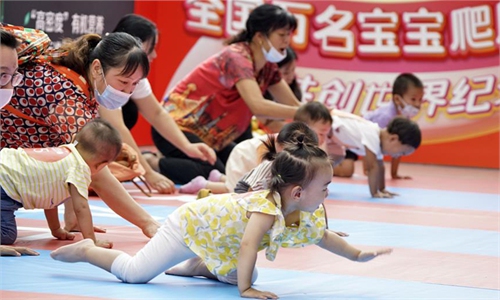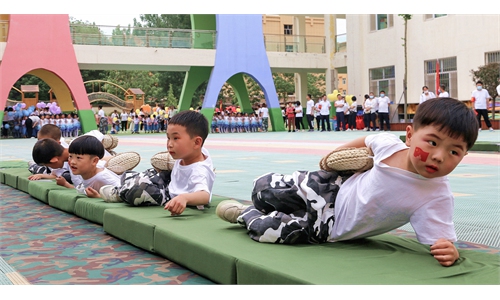
File Photo:VCG
Many places in China are investigating fertility wishes of women at childbearing age, with an expert pointing out that the survey aims to "help local policymakers formulate more considerate and targeted measures on encouraging women to give birth to a baby."
"It is also an expected follow-up move after the country announced to implement the three-child policy," Huang Wenzheng, a demography expert and senior researcher from the Center for China and Globalization, told the Global Times on Sunday.
The surveys of fertility willingness were followed up by a revised draft of the Law on Population and Family Planning, which was passed at the State Council executive meeting held on Friday. The participants of the meeting decided to submit the draft to the Standing Committee of the National People's Congress, which is China's top legislature.
Before the passing of the revised draft of the law, many places have carried out a comprehensive investigation regarding the fertility wishes of women at childbearing age, according to Thepaper.cn on Saturday.
Fuzhou in East China's Jiangxi Province held a meeting on Thursday, in which officials said that the government will conduct a comprehensive study on women of childbearing age and their willingness to have children, accelerate the formulation of supporting policies, and make great efforts to develop and improve the universal childcare service system.
On Wednesday, Jinping district in Shantou, South China district, saying that the local government will pay close attention to the implementation of the Three-Child Policy and obtain a comprehensive understanding of the fertility wishes of women in the district.
The National Bureau Statistics (NBS) teams in the cities of Rui'an in Jiangxi Province, Jinhua in East China's Zhejiang Province and Jinan in East China's Shandong Province also conducted surveys.
An investigation team of the NBS in Jinan selected 366 families to carry out an investigation regarding fertility intentions under the three-child policy. The results showed that families in the middle age bracket have higher fertility intentions than that of younger families, and rural areas are higher than urban areas.
"Economic pressure, time costs, pressure from work and physical conditions are all factors that restrict the willingness to have a third child," said the report by Jinan Daily.



